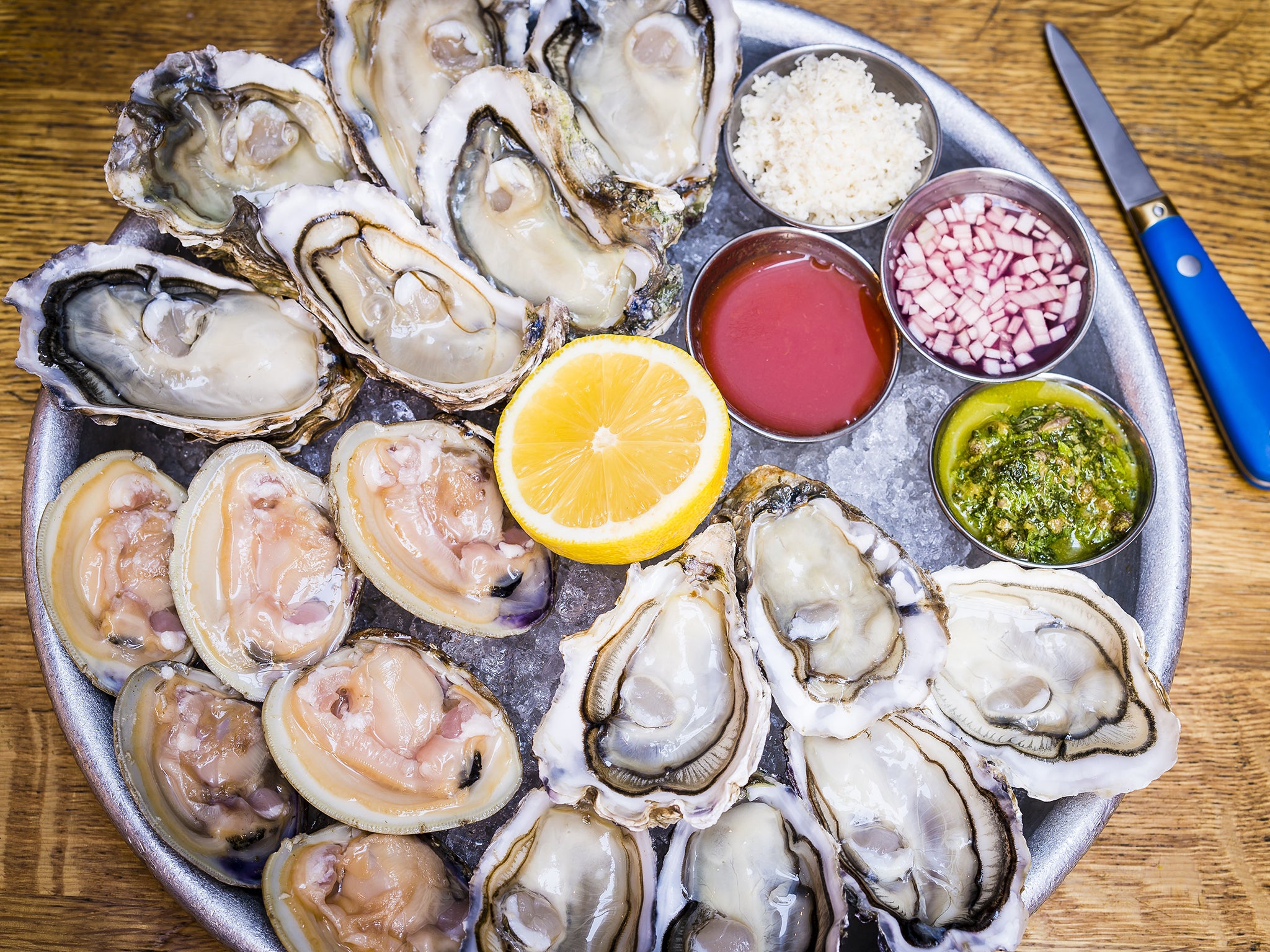Oysters are now affordable again thanks to restaurants like The Richmond in Hackney
Mags Crow's new restaurant will have a happy hour from 5-6pm in the week and 3-6pm on a Saturday, when oysters will be sold at a quid a pop

Your support helps us to tell the story
From reproductive rights to climate change to Big Tech, The Independent is on the ground when the story is developing. Whether it's investigating the financials of Elon Musk's pro-Trump PAC or producing our latest documentary, 'The A Word', which shines a light on the American women fighting for reproductive rights, we know how important it is to parse out the facts from the messaging.
At such a critical moment in US history, we need reporters on the ground. Your donation allows us to keep sending journalists to speak to both sides of the story.
The Independent is trusted by Americans across the entire political spectrum. And unlike many other quality news outlets, we choose not to lock Americans out of our reporting and analysis with paywalls. We believe quality journalism should be available to everyone, paid for by those who can afford it.
Your support makes all the difference.In Hackney, in the top right-hand corner of London, a restaurant called The Richmond opens today. It has been opened by Mags Crow, a stylist and scion of the Texas Crows, and Brett Redman, a Bib Gourmand-winning chef whose skills are such that he ought to be better known. And it will have a raw bar – serving everything from tuna tartare with aubergine and harissa to whacking-great sea urchins – which is rather unusual for a neighbourhood joint, which it purports to be.
But there's something else, too – it will have a happy hour of a very specific sort. From 5-6pm in the week and 3-6pm on a Saturday, it will serve oysters at a quid a pop. And it has quite a selection: there are Maldon Kumamoto (Essex), Cumbrae (Scotland), Menai rocks (Wales), Hearty (Ireland) and American Hardshell clams on the menu. It is a boon for bivalve lovers, of course – but it's also a sign of something else. Oysters are in the ascendant. Nuno Mendes has started selling them on an "oyster cart" outside his restaurant at Chiltern Firehouse, Sinclair's Oyster Bar in Manchester is selling them by the bucket-load and they are a familiar feature of street-food markets all over Britain.
What is interesting about this is that they are being sold at a price that everyone can afford, which may surprise you, because oysters have traditionally been the preserve of the champagne-quaffing rich. But it hasn't always been so.
No other food has had such a whirligig history as the oyster. Before the Romans arrived in Britain in 43AD, shellfish was generally a subsistence food, something you ate only when there was nothing else. The legionaries, however, started cultivating oyster beds all around Britain – Mersea being a particularly favoured site – and served them with pepper, lovage and even egg yolk (which must have made for an interestingly textured dish). They were a singular delicacy.
When our Roman overlords packed up and shipped home, the oyster fell from favour, a victim of the church's prohibition in the Middle Ages of mixing seafood and meat in a dish. By the late 18th century, however, we were eating them in vast quantities – Casanova famously breakfasted on 50 most days. But they were no longer a rich man's delicacy. Quite the reverse. As Sam Weller says in Dickens' Pickwick Papers, "poverty and oysters always seem to go together".
They were treated unceremoniously, sold in saloon bars with pints of stout for a penny for three. They were pickled in brine, and slung into pies with beef (the poorer you were, the more oysters you put in). They were the cheese-and-onion pasty of their day. So great was the demand for them that more than 124 million were sold in London every year, according to Henry Mayhew's London Labour and the London Poor.
The problem is, the Victorians liked them too much. They ate the oyster beds to death, and once more the oyster became a rarity, an upper-class hors d'oeuvre.
These days, we seem to have made our peace with oysters. We like them but we don't like them that much – which is a good thing, because between 3pm and 6pm tomorrow, you'll find me in The Richmond with a slice of lemon and some Tabasco.
Join our commenting forum
Join thought-provoking conversations, follow other Independent readers and see their replies
Comments